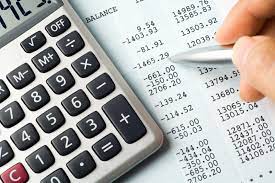Accounting is the measurement, analysis, and reporting of financial and/or non-financial information concerning businesses and organizations. The objective of accounting is to provide information that can support strategic decision making. It aims to provide information needed by managers to reach important decisions in the most timely manner possible. It is a system of measurement with a number of methods used for accounting purposes.
In accounting, financial transactions are recorded in a book of accounts. This includes the recording of sales, purchases, income, expenses, and other financial transactions related to the business. All transactions in an accounting record are later reflected in financial statements. These financial statements give information about the progress of a company in meeting its goals and objectives through activities that have been conducted during a specified period of time. They also show the results of operations for a company in relation to its financial background.
Accounting records are usually maintained in ledgers, which are computerized accounting ledgers. In this way, accounting transactions are properly recorded on the basis of the information brought in by the ledger accounts. There are two types of ledger accounts: human-written accounts and machine-written accounts. Human-written accounts include vouchers, debit cards, bills, memos, slips, and oral orders; machine-written accounts include ledgers, vouchers, stock certificates, journals, memos, statements, and overdrafts.
Basic accounting involves the collection, interpretation, maintenance, allocation, and reporting of financial data. Accountants perform basic accounting activities as outlined by the International Financial Reporting Standards (IFRS). On the other hand, accounting professionals are required to complete an accounting thesis in order to specialize in a particular area of accounting such as accounting theory, auditing, or management accounting.
The two major fields of accounting are cost accounting or fundamental accounting, which is concerned with valuing assets, liabilities, and assets for the purpose of accounting and monetary control; and managerial accounting, which is concerned with systems and procedures for accounting, numerical methods, and policy statements controlling cost accounting and other managerial activities. All the methods and tools used in cost accounting and managerial accounting are used in the day-to-day business decisions of the owners and managers of the business. This means that even though an accountant is dealing with the financial records of a client company, she is also indirectly engaged in the day-to-day business decisions of the managers. This gives the accountant an important role in the economic viability of the clients’ companies.
In addition to the core responsibilities of accounting, there are also several additional areas of responsibility that accountants should be familiar with. Some of these areas of responsibility are risk management, internal control, public accounting, tax accounting, project accounting, and fraud and forensic accounting. It would also be beneficial for accountants to have knowledge and training in other fields such as economics, business management, information technology, mathematics, and computer science. These skills can help accountants in their career development.









